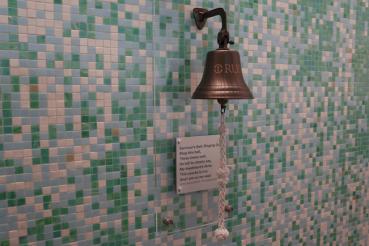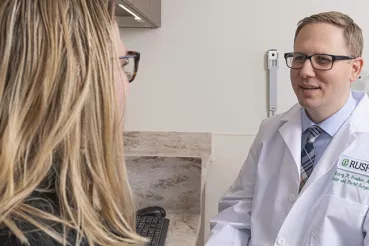Everyone suffers the occasional bout of heartburn — especially if you've eaten a whole plate of cheese fries or just one more slice of pizza. But when you start popping antacids twice a week or more for at least two weeks, it's time to consider seeing your doctor.
Heartburn can be a symptom of gastroesophageal reflux disease (GERD), a condition where stomach acid repeatedly escapes up to the esophagus — the muscular tube that transports food and liquid to the stomach. Unfortunately, the esophagus is not equipped to protect itself against acid or any backed-up food.
Over time, this reflux of stomach acid can damage the lining of the esophagus, replacing the squamous cells typically found in the esophagus with abnormal glandular cells that may have the potential to develop cancer.
The presence of these glandular cells in the esophagus is known as Barrett's esophagus. About 10% of people with symptoms of GERD, also known as acid reflux, have Barrett's esophagus.
What can it lead to?
People with Barrett's esophagus are anywhere from 30 to 125 times more likely to develop esophageal cancer, according to the American Cancer Society.
The longer a person has reflux, the higher the possibility that they'll develop Barrett's. These changes in the esophagus are one step closer to getting esophageal cancer — one of the fastest growing cancers in the United States.
About 30% of esophageal cancers can be linked to GERD, according to the American Cancer Society. Because of increased fat consumption and obesity, the number of Americans with reflux is increasing, leading to a rise in esophageal cancer.
For 2022, the National Cancer Institute estimates nearly 21,000 new cases of esophageal cancer and more than 16,000 deaths due to esophageal cancer in the United States. Esophageal cancer has such a high mortality because it is often diagnosed late.
If caught early, however, the cancer can be treated and removed before it spreads. For this reason, people with a precancerous condition such as Barrett's esophagus require close medical follow-up.
What can be done?
For those who have GERD, the best way to prevent cancer is to see a doctor and get treated early on, before further damage to the esophagus develops. Treatment can include medication — many of which are available over the counter — and diet and lifestyle changes.
For those who have GERD, the best way to prevent cancer is to see a doctor and get treated early on, before further damage to the esophagus develops.
Whether you just have occasional heartburn or are already under a doctor's care, you can decrease your chance of developing esophageal cancer by doing the following:
- Do not start using tobacco products. If you currently do, quit.
- Do not drink large amounts of alcohol.
- If you are overweight or obese, lose weight.
- Eat a diet rich in fruits and vegetables, especially raw ones.
- If you have acid reflux or GERD, see your doctor and get it properly treated.
- If you have already been diagnosed with Barrett's esophagus, talk to your doctor about getting regular cancer screenings.




